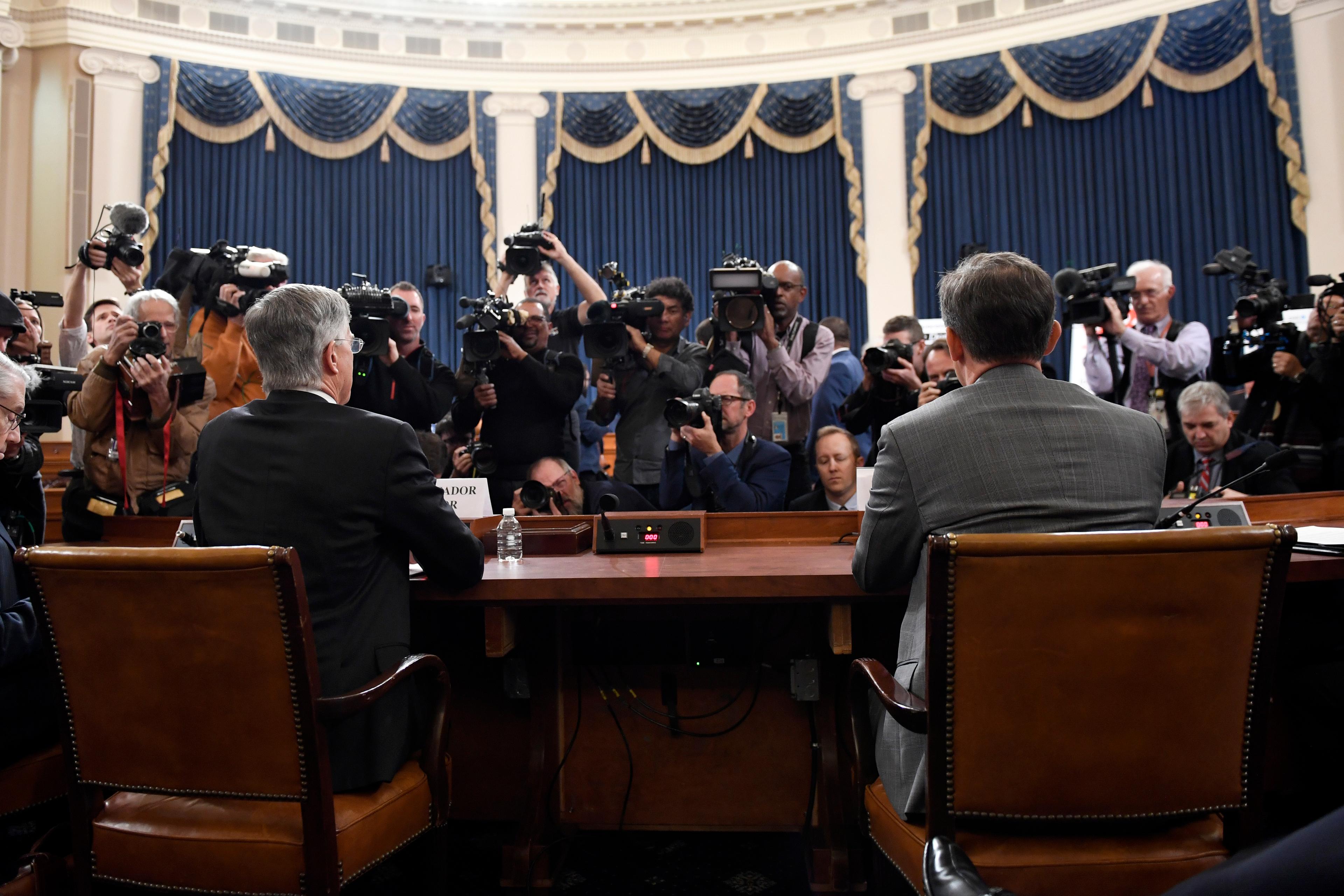
Colorado's House members are sticking to their partisan arguments after the first day of public testimony in the Trump impeachment inquiry. Both Reps. Ken Buck, a Republican, and Joe Neguse, a Democrat, sit on the House Judiciary Committee.
“Just to be able to speculate about how people felt or what someone said to someone said to someone said, is just not fair,” Buck said.
Neguse, who also caught parts of the testimony between committee meetings, explained that the “ability, opportunity to hear from [Amb. William Taylor and Deputy Assistant Secretary of State George Kent] directly as they shared their stories and told the truth about the underlying events at issue, I thought was very compelling.”
Both representatives are thinking about what happens when the process moves to their committee. All GOP members of the Judiciary, including Buck, have signed a letter to Democratic Chairman Jerry Nadler to outline their expectations. It includes receiving all evidence and materials from the investigating committees, conducting public hearings and an open line of communication with the investigating committees.
“If you’re going to have a committee markup articles of impeachment. That committee should hear original testimony and not just get a report from another committee and vote,” Buck said. “I think it’s unfair to expect members to do that.”
And Republican members want Intelligence committee chairman Adam Schiff to testify about how he conducted the investigation and the whistleblower.
“If the whistleblower made statements or was coached in some way, I think that’s relevant to know — for members to consider — before they vote on articles of impeachment,” Buck said.
Neugse believes the way the rules have been set up in the impeachment inquiry resolution meet the due process and fairness standards. He noted they were used in the Clinton and Nixon impeachment process.
“I think there are a number of different safeguards in place that provide the minority party with the ability to engage in good faith in this process,” Neguse said. “I understand that they would like to continue to focus on making process arguments. From my perspective, I think we should spend more time discussing the substance.”
Colorado Springs Republican Rep. Doug Lamborn sat and listened to some of the testimony and thought the Democrats put forth a weak argument.
“The testimony was about second or third-hand information,” Lamborn said. “And there was no quid pro quo that I could see.”
Taylor dropped the biggest bombshell of the day. He said one of his staffers told him of a phone call overheard between President Donald Trump and U.S. Ambassador to the EU Gordon Sondland. The staffer could hear Trump ask about “the investigations.”
“Following the call with President Trump, the member of my staff asked Ambassador Sondland what President Trump thought about Ukraine,” Taylor said. “Amb. Sondland responded that President Trump cares more about the investigations of Biden, which Giuliani was pressing for.”
The next public hearing is in the inquiry is scheduled for Nov. 15, when former U.S. Ambassador to Ukraine Marie Yovanovitch will appear. Four officials, including Lt. Col. Alexander Vindman of the National Security Council, will testify on Nov. 19. AMb. Gordon Sondland will testify on Nov. 20 with two others and former NSC staffer Fiona Hill will testify on Nov. 21.
Read More: 7 Moments That Stood Out From The 1st Day Of The Trump Impeachment Hearings








